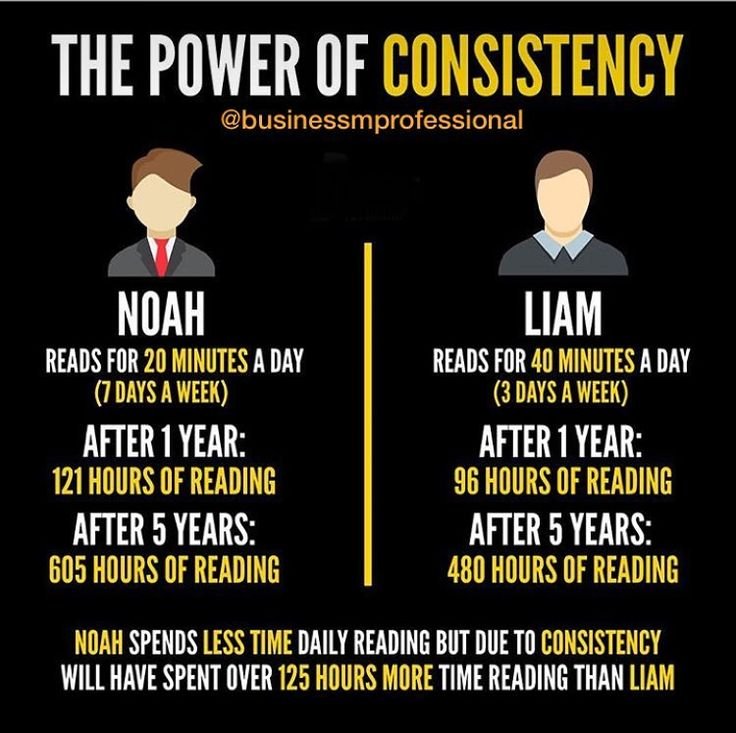
Consistency and a resilient, “don’t give up” attitude are cornerstones of success in the startup world. While innovative ideas and solid funding are essential for launching a business, it’s the consistent effort over time that sustains it. Startups often face hurdles, from market fluctuations and resource constraints to unexpected competition and setbacks. In such moments, maintaining steady progress through consistent effort is critical. Consistency isn’t just about hard work but about creating a rhythm of sustained progress—small, deliberate actions that drive growth even when big wins are scarce. Every small step compounds, building a foundation of improvement that helps startups adapt, iterate, and evolve in response to market needs. Consistency also cultivates reliability in brand identity, trust with customers, and a dependable business structure, which is especially important in the early stages of a startup when it’s crucial to create and maintain customer confidence.
In addition to consistency, resilience, or the “don’t give up” attitude, is equally vital. Startups operate in highly volatile environments where failure is more common than success. With roughly 90% of startups failing within the first few years, only the most resilient founders continue to push forward despite setbacks. Resilience allows entrepreneurs to treat failures as learning experiences rather than endpoints. With each challenge comes the opportunity to learn and recalibrate; this might mean pivoting a business model, tweaking a product, or altering marketing strategies. A determined mindset encourages founders and their teams to see each challenge as a stepping stone rather than an obstacle. This mental framework not only improves problem-solving but also fosters innovation, as resilience demands creative ways to navigate challenges rather than taking defeat as an option.
The combination of consistency and a resilient attitude also has a positive effect on team morale. Employees look to founders for direction, and when they see a leader who approaches setbacks with grit and maintains a consistent vision, they feel inspired to mirror those traits. A startup’s early stages are often characterized by long hours, high pressure, and limited resources, which can wear down team members. A founder who exemplifies tenacity and steadiness can bolster the entire team’s motivation, encouraging them to stay committed to the company’s mission even in difficult times. A culture built on these values of persistence and reliability is likely to retain its best talent, as employees feel they’re part of something meaningful and resilient.
Consistency and resilience also contribute to the gradual building of a brand’s reputation. In a world where trust and reputation can make or break a business, consistently delivering quality, meeting promises, and showing unwavering commitment to problem-solving set a startup apart. Customers, partners, and investors want to know that a business is built to last and that it will persevere through tough times. A startup that is perceived as resilient, adaptable, and committed to its goals is more likely to attract long-term customers, receive investment, and form valuable partnerships.
In the journey of a startup, where the road is filled with highs and lows, a commitment to consistency and a “don’t give up” mindset are what separate lasting successes from fleeting attempts. These traits turn short-term victories into sustained achievements and help transform challenges into growth opportunities. With these qualities at its core, a startup isn’t just a business—it becomes a venture with the endurance and vision to make a lasting impact.
–PRADHAN CHINNAPPA






